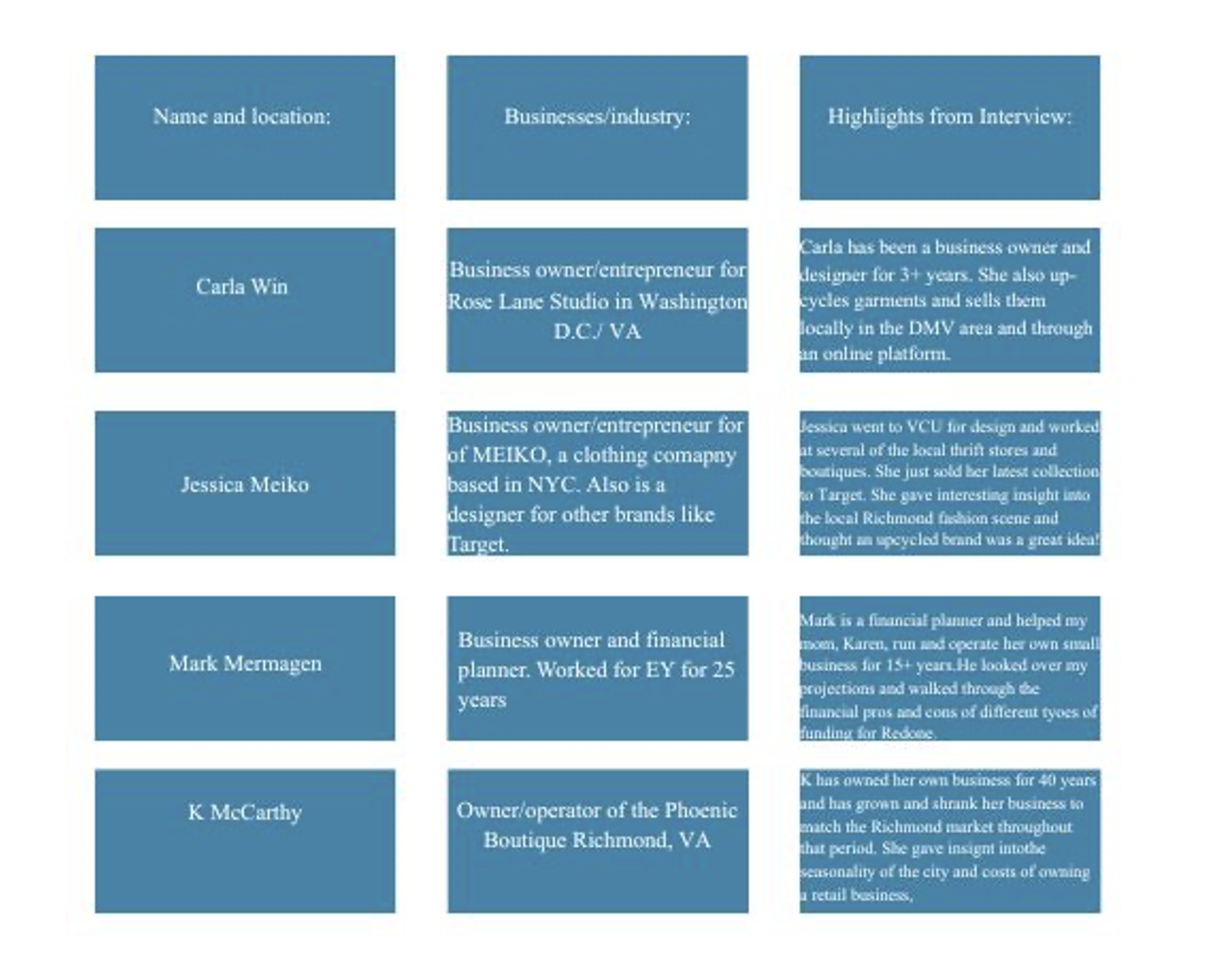
Project snapshot
A complete feasibility study for Redone Clothing Boutique, a Richmond-based, upcycled fashion studio designed to merge environmental responsibility with modern design, targeting Gen Z and Millennial shoppers near VCU/VUU. Work spanned market sizing, customer discovery, competitive positioning, operating model design, startup budgeting, and 24-month financial projections.
My Role & Project Goal
My Role:
Researcher & analyst (solo project)
Course: MBA 711 Entrepreneurship — Feasibility Study
Deliverable: 24-page feasibility report + financial model (breakeven, NPV, payback)
Problem: Fast-fashion drives waste and erodes local authenticity; students and young professionals want unique, sustainable apparel at approachable prices.
Goal: Determine if a small, in-house upcycling studio can launch sustainably in Richmond with healthy unit economics and a clear competitive moat.
What I did:
Market & customer research: Assessed the sustainable/upcycled apparel trend; interviewed local students to test willingness-to-pay, convenience needs, and brand values. REDONE Clothing-FeasibilityStud…
Competitive mapping: Benchmarked local consignment/thrift options and national fast-fashion, identifying a gap for professionally upcycled, locally produced apparel.
Operating model: Designed an in-house production workflow (sorting → design → repurpose → finishing), with low material costs via reclaimed textiles and value-based pricing.
Financial modeling: Built startup budget, unit economics, breakeven, 24-month cash flow, and NPV/payback sensitivity.
Key Insights & Results
Clear target: Gen Z/Millennial buyers who prioritize sustainability and uniqueness; strong campus-adjacent demand in Richmond.
Competitive edge: Authentic, visible craftsmanship and local sourcing—not price—differentiates from fast fashion and generic resale.
Unit economics:
Avg. price ~$85; variable cost ~$27.55; breakeven ~227 units/month (~8/day).
Positive NPV over 24 months; payback ~4.5–5 years under base case.
Startup capital: Estimated $65k–$90k (midpoint modeled at ~$75k) for build-out, equipment, initial inventory, and working capital.
Go-to-market: Hybrid retail + light e-commerce (e.g., Instagram Shopping), with student-led events and sustainability storytelling to drive early traction.
Risks & mitigations
Tools & methods
Primary interviews, desk research, SWOT, pricing strategy, CVP/breakeven, DCF/NPV, sensitivity analysis, and lean operating model design.
Demand risk: Counter with transparent sourcing stories, campus partnerships, and limited-drop releases to drive urgency.
Supply variability: Multi-source reclaimed textiles; implement in-house sorting and quality protocols with buffer inventory.
Early liquidity: Maintain 3-month working-capital reserve and explore microloans/crowdfunding to smooth ramp.
Outcome
The study recommends moving forward with launch preparations in Richmond, given mission-market fit, authentic differentiation, and viable economics with disciplined cost control.
To read the full study check out the link to the right.




